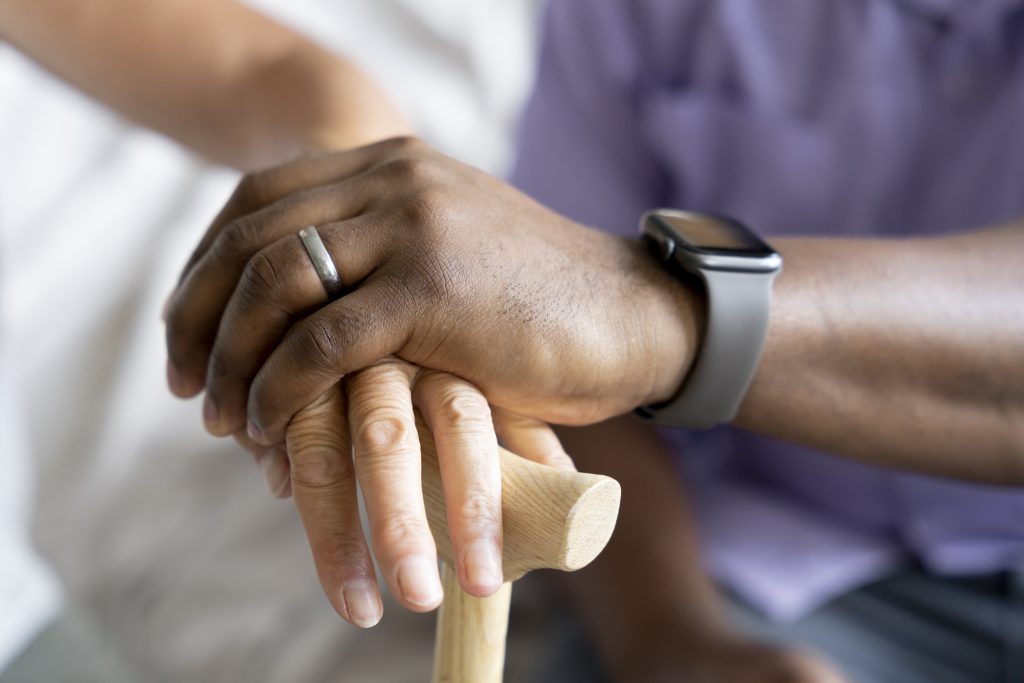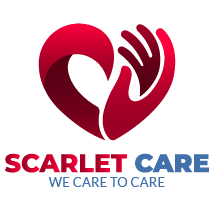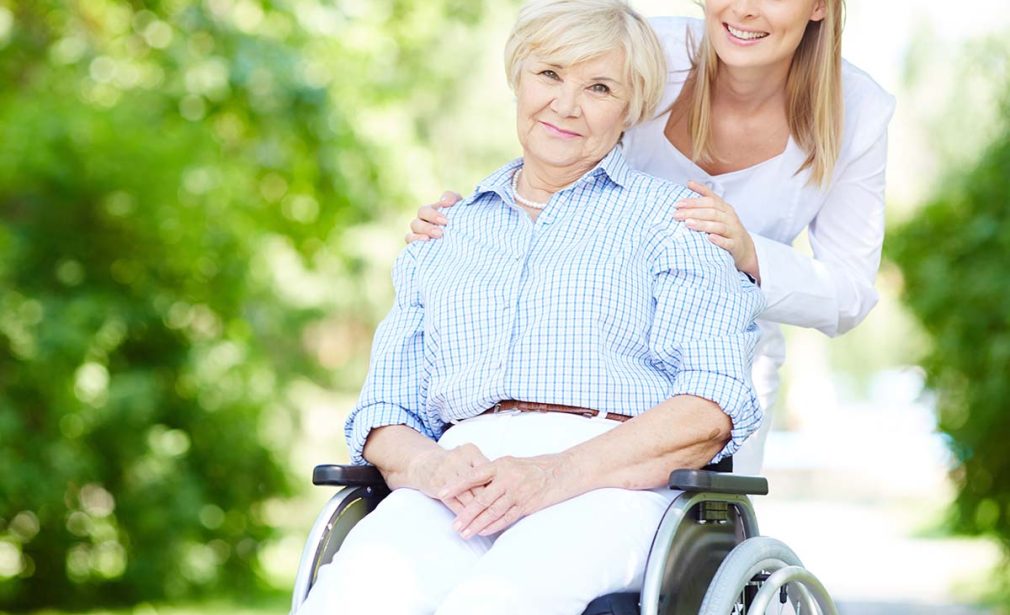Stroke Care
All the support your mum needs after a stroke. In the place she feels best.
Adjusting to life after a stroke can be challenging. You may feel exhausted, anxious about the future, or overwhelmed by what’s happened — whether it’s you or a loved one affected. But you don’t have to face it alone.
At Scarlet Care, we’re here to provide the extra home care and support you need to navigate stroke recovery with confidence. Our dedicated team is experienced in delivering practical help, emotional reassurance, and social support — all designed to help you or your loved one regain independence and rebuild a fulfilling life at home.
What is a stroke?
A stroke occurs when a blood vessel in the brain becomes blocked or bursts, cutting off the blood supply to brain tissue. Without oxygen and nutrients, brain cells begin to die — which is why every second counts. The effects of a stroke can vary significantly, depending on the location and severity of the damage in the brain.
In the UK, around 150,000 people experience a stroke each year. While strokes can affect people of any age, they are most common in those over 65 — with approximately 75% of cases occurring in this age group. Risk factors include family history, high blood pressure, diabetes, obesity, and smoking.
Every stroke is different, and so is every recovery journey. If you’d like to learn more or access wider support, we recommend visiting the Stroke Association for further information and resources.
What are the after effects of a stroke?
A stroke can be life-changing — both for the individual and their loved ones. Recovery is often a journey marked by highs and lows, as each stroke affects the brain differently. The physical, emotional, and cognitive impacts vary widely depending on the area of the brain involved and the extent of damage.
Here are some common after-effects of a stroke:
- Aphasia: Difficulties with speaking, understanding language, reading, or writing.
- Expressive aphasia: Trouble forming words or sentences, which may lead to frustration.
- Receptive aphasia: Challenges with understanding spoken or written communication.
- Non-verbal communication issues: Difficulty interpreting body language, tone of voice, or facial expressions.
- Memory challenges: Trouble recalling words, names, or recent events, making conversations more difficult.
- Impaired social skills: Struggles with conversation flow, recognising social cues, or engaging in small talk.
- Weakness or paralysis: Often affecting one side of the body (hemiparesis or hemiplegia), reducing mobility and independence.
- Coordination and balance difficulties: Walking and daily activities may become harder due to instability.
- Fatigue: Extreme, persistent tiredness that can occur even after minimal activity.
- Seizures: Some individuals may develop seizures after a stroke due to changes in brain function.
- Swallowing difficulties (dysphagia): Increased risk of choking or aspiration when eating or drinking.
- Incontinence: Loss of bladder or bowel control, often causing distress or embarrassment.
- Depression: Feelings of sadness, low motivation, or disinterest in previously enjoyed activities.
- Anxiety: Worries about health, recovery, or future wellbeing that may impact mental health.
- Emotional changes: Unpredictable mood swings or involuntary emotional expressions, such as laughing or crying without clear cause.
Recognising and understanding these symptoms is the first step toward providing effective care. With the right support and patience, individuals can regain confidence, rebuild routines, and improve quality of life.
Tailored after stroke care at home
Recovering from a stroke can be a challenging journey — but you don’t have to face it alone. At Scarlet Care, we’re committed to providing compassionate, person-centred support that helps your loved one regain confidence, rebuild independence, and feel secure in the comfort of home.
Our Care Experts are specially trained in post-stroke care, offering a personalised approach that addresses both physical and emotional needs. Every care plan is shaped around your unique recovery goals, with practical support to ease daily life and guidance to help families adjust and thrive together.
Here’s how we support you after a stroke:
- Rehabilitation support – Encouraging you to regain skills and adapt to new ways of managing daily routines.
- A positive start to the day – Helping with washing, dressing, and enjoying a nourishing breakfast.
- Engagement in meaningful activities – From reconnecting with loved ones to enjoying fresh air and gentle walks.
- Practical home help – Assistance with housework, shopping, laundry, and keeping the home safe and tidy.
- Medication management – Support in taking medications correctly and maintaining a steady supply.
- Nutritious meal preparation – Promoting healthy eating to support recovery and reduce stroke risk.
- Evening reassurance – Nightly check-ins or overnight care to ensure you’re safe and comfortable.
- 24-hour care options – Whether you need short-term respite or long-term home care, we’re always here to help.
- Our goal is to make every day feel manageable, meaningful, and full of potential — for you and your family.

Getting started
If you think Scarlet Care might be the right fit for your loved one — or even if you’re just exploring options — we’d love to have a friendly chat. It’s a chance for us to learn more about you and your loved one’s needs, and for you to discover how we can support your journey with compassionate, personalised care.


